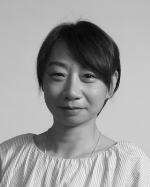Researchers
Professor Paul Breen's research focuses on bioelectronics and neuroscience and his interests involve investigating the potential of subsensory electrical noise as a treatment for the loss of sensory function.

Professor Dean is a renowned Australian composer, improviser and performer whose research seeks to understand how music is perceived and how meaning (notably affect) is generated. He applies new cognitive and computational knowledge to develop novel methods for creating music.
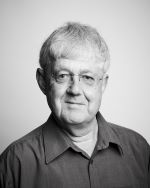
Dr Gaetano Gargiulo is a Research Lecturer and his research interests include biomedical instrumentation and biomedical data analysis with a particular focus on Brain/Human computer interface and cardiac inverse modelling.
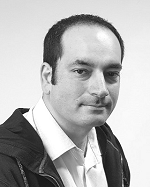
Professor Paul Hurley is a Professor of Data Science at the International Centre for Neuromorphic Systems (ICNS). His research interests are mathematical signal processing, data science, algorithms, information theory medical imaging and radio astronomy interferometry.
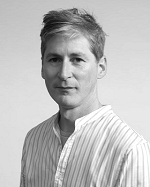
Peter Keller is Professor of Cognitive Science and leader of the Music Cognition and Action research program at MARCS. His research aims at understanding the behavioural and brain bases of human interaction in musical contexts, specifically, the sensory-motor and cognitive processes that enable ensemble musicians to coordinate with one another.

Professor Jeesun Kim is a researcher in our Multisensory Communication research program. Her research concerns information processing in face-to-face communication and involves measuring/analysing properties of auditory speech and facial movements (visual speech) of talkers in various communication conditions, and how such conditions impact on speech production and perception.

Professor Robert Mailhammer is a Lecturer in Linguistics in the School of Humanities and Communication Arts; and a member of our Speech and Language research program. His research interests are broad with concentrations on historical linguistics, language documentation, phonetics & phonology, and morphology.

Professor Alana Maurushat is Professor of Cybersecurity and Behaviour at Western Sydney University where she holds a joint position in the School of Computer, Data and Mathematical Sciences and in the School of Social Sciences, and is Key Researcher with the CRC Smart Satellites

Professor Catherine Renshaw researches in the field of international human rights law, with a particular focus on the intersection between rights and the medical sciences in the field of ageing. She is a founding member of the Network for Law and Human Rights.
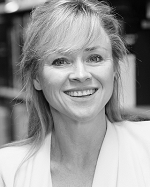
Professor Simeon Simoff is a Professor of Information Techology within the School of Computer, Data and Mathematical Sciences and the leader of our Human-Machine Interaction research program. His research interests include artificial intelligence, data mining/analytics and knowledge discovery, human computer interactions, virtual worlds and immersive environments, visual computing and visual data mining and analytics.
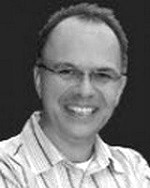
Gabrielle is a Professor in Psychological Science in the School of Psychology. She is currently conducting research examining associative learning and classical conditioning processes in human participants and the role that associative learning and memory play in the acquisition of likes and dislikes.

Anton Bogdanovych is a Lecturer within the School of Computer, Data and Mathematical Sciences; and a researcher in our Human-Machine Interaction research program. He is involved in a number of research projects related to virtual reality, artificial intelligence, robotics and motion.

Associate Professor Yossi Buskila is a faculty member at the School of Medicine and a research fellow at the MARCS Institute.
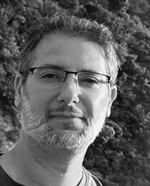
John Cass is Associate Professor in Psychological Science in the School of Psychology and a member of our Multisensory Processing research program.

Associate Professor Andrew Milne works at the interface of music, cognitive science and computing – and their implications for creativity, education and wellbeing.

Dr Quang Vinh Nguyen is is Associate Professor in the School of Computer, Data and Mathematical Sciences; and a researcher in our Human-Machine Interaction program.
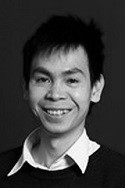
Dr Oliver Obst is Associate Professor in Data Science and the Director of Research, Quality, and Innovation for the School of Computer, Data and Mathematical Sciences. Oliver's research interests include machine learning, neural networks and information theoretic approaches. He is an a member of the board of trustees of the RoboCup federation (an organisation to foster research and education in AI), and served as a PC member of scientific conferences such as NIPS, IJCAI, and AIStats.

Associate Professor Tomas Trescak is one of our school-based researchers based with the School of Computer, Data and Mathematical Sciences. He is a Lecturer in Intelligent Systems and is closely connected with our Human-Machine Interaction program.

Tamara Watson is Associate Professor in Psychological Science in the School of Psychology; and member of our Multisensory Processing research program. Her research interests include identifying the basis for perceptual stability and perceptual omission during saccadic eye movements, steady state visual evoked potential measures of audio-visual integration and altered visual perception in schizophrenia.

Dr Saeed Afshar is a Senior Lecturer with the International Centre for Neuromorphic Systems. His research seeks to investigate computational architectures and algorithms from the fields of neuroscience, machine learning, signal processing, and circuit design to develop novel vision and memory systems with superior performance in dynamic noisy environments when compared with the state of the art conventional computing approaches.
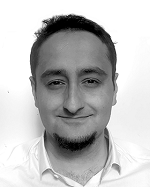
Dr Anil is a postdoctoral researcher at the Human Physiology Lab, where her passion for interdisciplinary research drives her engagement in a diverse range of studies encompassing human physiology and biomedical advancements in the fields of concussion (TBI), peripheral neuropathy, vestibular impairments, and hearing loss.
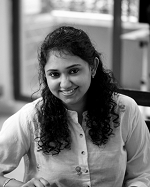
Eylem is a postdoctoral researcher in brain sciences with a focus on developmental language processes in infants.
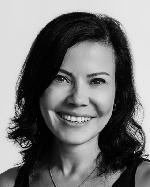
Evie’s research interests revolve around advancing intelligence for autonomous robotic systems, especially in resource-constrained environments.

Yeshwanth Bethi is a Postdoctoral Research Fellow in Machine Learning and Neuromorphic Engineering.
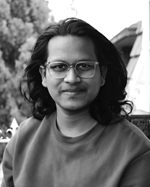
Dr Ruth Brookman is a researcher and clinical psychology registrar, and an academic member of the MARCS Institute's Lifespan Labs. Her clinical experience and research interests cover the lifespan. She is particularly interested in supporting well-being and social interactions between people with dementia and their caregivers.
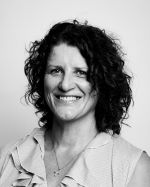
Dr Gabriele Cecchetti's research interests lie on a spectrum spanning from music analysis and performance to the cognitive underpinnings of the experience of music: what kinds of structures can be hidden in music, and what cognitive processes make it possible for humans to discover such structures while listening?

Dr Simon Chambers is a cultural sociologist whose work involves understanding the dynamics of how culture is produced and engaged with by audiences.
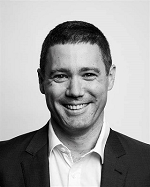
Dr Sergio Chevtchenko is a researcher with the International Centre for Neuromorphic Systems (ICNS).
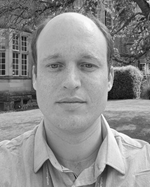
Dr Shi Min April Ching is a postdoctoral research fellow with research interests in multisensory integration and non-conscious processing.
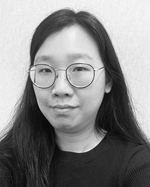
Dr Cottier's research seeks to elucidate upon how humans perceive and interact with their external environment. As such, he is interested in understanding the neural mechanisms and processes that underly visual perception.

Laura is a public health researcher and practitioner with experience on the frontline of aged and disability sectors.

Gloria holds a PhD from The MARCS Institute for Brain, Behaviour and Development at Western Sydney University, a Master of Science and a BA in Interpreting and Translation. Gloria's research experience involves child development, language, cognition, and word-learning mechanisms in monolingual and multilingual populations.
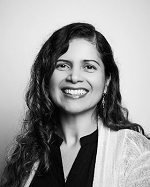
Dr Sandra Garrido studies how arts-based interventions can affect our mood, emotions and wellbeing. Her research has provided the evidence for effective programs and tools that use music to improve mood and quality of life for young people with depression and older people with dementia.
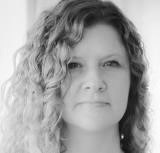
Dr Michael Gascoigne joined the School of Psychology at Western Sydney University in September 2021 as a Senior Lecturer. His research interests relate to cognitive deficits in clinical populations.

Antonia investigates infants' and children's abilities to perceive native and non-native speech sounds and is particularly interested in how phonological categories are formed in the first year of life. To get a multifaceted view of the infant's abilities she uses different behavioral (e.g., looking times) and neural (electrophysiological and functional near-infrared spectroscopy) techniques.
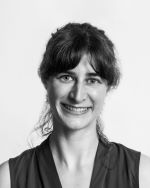
Dr Tijl Grootswagers is an ARC DECRA Senior Research Fellow in Cognitive Neuroscience at the MARCS Institute and Western Sydney University. He is a computational cognitive neuroscientist who combines machine learning, neuroimaging, and behavioural data, to understand how the brain perceives and processes information, particularly in the areas of visual perception and decision-making. He is known for his contributions to understanding the neural basis of visual perception, linking neuroimaging results to behaviour, and developing advanced neuroimaging methods.

Dr Jose Hanham is a Senior Lecturer in the School of Education and a school-based member of MARCS Music Cognition and Action group. His research program focus is Educational Psychology, Learning and Cognitive Sciences.
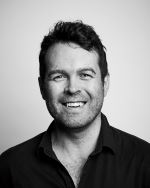
Dr Jayarathna’s role involves conducting interdisciplinary research in biomedical engineering, with a focus on the development of wearable neurostimulation devices. His responsibilities span embedded system design, electronic hardware development, firmware and app creation, and translating user needs into validated medical technologies.

Dr Mohammad Khaleqi Qaleh Jooq is a Postdoctoral Researcher at the International Centre for Neuromorphic Systems (ICNS). His main research interests include fuzzy logic, carbon nanotube electronics, neuromorphic computing, hardware design for image processing, and nanoscale device modeling.
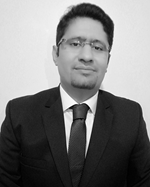
Dr Nimrod Kruger joined International Centre for Neuromorphic Systems (ICNS) in 2024 as a postdoctoral research fellow in Neuromorphic Engineering.
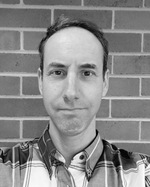
Dr Weicong Li is a Research Officer in the ARC Centre of Excellence for the Dynamics of Language. Weicong has a background in physics and engineering, and contributes technical expertise to research in the analysis of speech and language corpora (children, adults and the elderly).
Dr Liang's research interests cover early language and multiliteracies education, early bi/multilingualism, and technology in early literacy and language education, etc. His recent studies expand to explore how digital technology facilitates early literacy education, and how technology in early literacy experience impacts on child brain development.
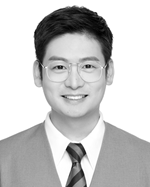
Dr Kate Linklater is a policing lecturer from the School of Social Sciences. Her research focuses on the social and cultural impacts of policy change within policing workplaces and is underpinned by an inclusion capital framework.
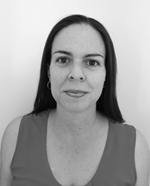
Dr Ruby Lipson-Smith is an environmental psychology and healthcare researcher with a particular interest in sub-acute healthcare environments, especially rehabilitation and residential aged care. Her research challenges how healthcare buildings and programs are designed and used, their purpose, and the impact they have on users' experience, behaviour, health, and cognition.
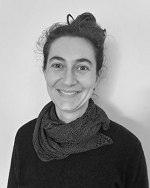
Dr Gough Lui is a biomedical and electronics engineer whose research identifies unmet clinical needs in the healthcare system and addresses them in the most effective way using existing technology.

Dr Alexandre Marcireau joined the International Centre for Neuromorphic Systems (ICNS) in 2019 as a postdoctoral research fellow in Neuromorphic Engineering. His research focuses on bio-inspired computer vision, event vision sensors, event-based processing, and software development.

Dr Karen Mattock is the Director of Academic Program (Years 1 - 3) within the School of Psychology. Her research interests are in infant and child language development, particularly in the areas of speech perception, babbling, bilingualism and infant-directed speech, as well as word learning in infants, children and adults.

Dr Andrew McKinnon is a Lecturer in Clinical Neuropsychology and a clinical neuropsychologist in the School of Psychology, WSU. Andrew focuses on modifiable risk factors for dementia, and has incorporated further modalities including heart rate variability, oxygen desaturation, and structural imaging.
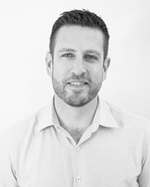
Dr Moerel's research uses methodologies such as EEG, MEG and fMRI in combination with machine learning methods. She joined MARCS as a Postdoctoral Research Fellow in 2024.
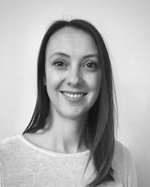
Dr Omar Mubin is a lecturer in the School of Computer, Data and Mathematical Sciences and a researcher in our Human-Machine Interaction research program. His research interests comprise Human Computer Interaction, exploring the role of robots in education, empirical research in Human Computer Interaction and user-centred design.
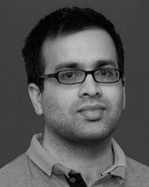
Dr Teddy Nagaddya is a social scientist, an early career researcher within the School of Social Sciences and a member of the MARCS Institute. Predominantly, Teddy focuses on women from culturally and linguistically diverse backgrounds living in disadvantaged geographies and rapidly changing economies.
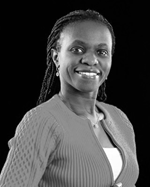
Dr Laurence Park is a Lecturer in computational mathematics statistics in the School of Computer, Data and Mathematical Sciences; and researcher in our Human-Machine Interaction research program. His research interests include large-scale multi-label learning, and computing document models from user interaction and analysis of Social Network graphs.
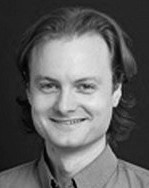
Samalika serves as a Research Engineer in Neuromorphic Computing at the International Centre for Neuromorphic Systems (ICNS).
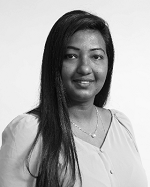
Dr Genevieve Quek has extensive experience in continuous behavioural methods, and trained extensively in leading European cognitive neuroscience labs to build deep expertise in advanced electroencephalography (EEG) and magnetoencephalography (MEG). She joined MARCS as a Research Fellow in 2021.

Dr Nic Ralph completed his PhD at the International Centre for Neuromorphic Systems (ICNS) with a thesis on Exploring Space Situational Awareness using Neuromorphic Event-Based Cameras. His research focus is computer vision, machine learning, astronomy, space science and mechatronic design.
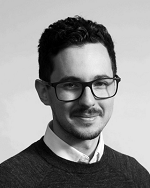
Dr Mark Richards is an associate research fellow in Language Technologies for Education. Mark's research centres on language revitalisation and language learning. He is interested in the role of technology in scaffolding and supporting language learning. He is currently undertaking a review of recent research into the use of technology in the context of language learning to identify features of different technologies that research suggests provide benefits for learning. He is also consulting as widely as possible with Aboriginal communities and other language learners to inform the development of learning tools to support sustainable language revitalisation.
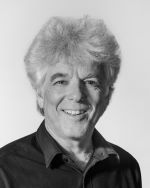
Dr Hannah Sarvasy is an ARC Discovery Early Career Researcher in our Speech and Language program. Her research interests are clause chaining, switch-reference, linguistic fieldwork, Papuan languages, Atlantic languages, Bantu languages, linguistic typology, child language acquisition, field-based experimentation.
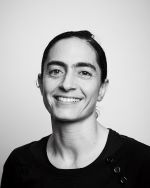
Jasmine Seymour is a Dharug woman belonging to the Burubirangal people. She is a Dharug language teacher, Dharug language activist, an award-winning children's book author-illustrator, a primary school teacher and a language researcher. Jasmine supports Australian language education for all and works towards advocating for and promoting multilingual Indigenous Australia.

Dr Sharma's research focuses on how individuals and organisations interact with new-age technologies and their impact on well-being, financial inclusion, and consumer behaviour. She investigates how businesses can leverage these technologies to craft better products, services, and user experiences.
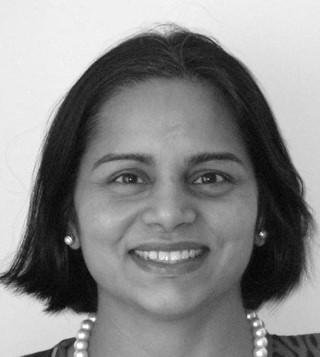
Dr Alison Short is Lecturer in Creative Music Therapy in the School of Humanities and Communication Arts; and member of our Music Cognition and Action research program. She harnesses her 23 years of experience as a qualified and practising music therapist and 10 years of experience as a full-time health services researcher to address issues related to music, music therapy and the auditory environment.
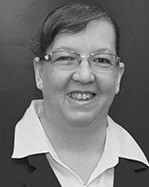
Dr Chris Stanton is a postdoctoral research fellow in our Human-Machine Interaction research program. His research focuses on both Human-Robot Interaction (HRI) and Human-Machine Interaction (HMI), in particular how a robot's behaviour and appearance can influence people's behaviour, attitudes, and decision-making processes.

Dr Kylie Steel is a Senior Lecturer in Motor Learning (Skill Acquisition) and Motor Control in the School of Health Sciences.
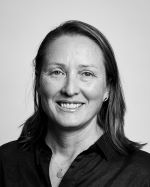
Dr Paul Strutt is a Senior Lecturer in the School of Psychology (SoP), Western Sydney University, and a Clinical Neuropsychologist in private practice. He combines his academic and clinical practice in his research, currently undertaking a range of projects broadly within the field of neuropsychology as a member of the SoP Neuropsychology Research Group (NRG).
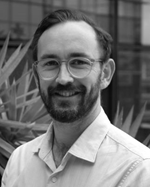
Mark Temple's work involves the sonification of DNA sequences as a complement to the visual inspection of genomic information. As a practising musician, the science audio is used in a creative space to develop outreach works to raise awareness of STEM issues and interface with STE(A)M projects.

Nicholas Tothill is a Senior Lecturer and Director of WSU Penrith Observatory. He joined WSU in 2011 as a Lecturer in the Computational Astrophysics, Imaging and Simulation group, and was promoted to Senior Lecturer in 2015. He became Director of WSU Penrith Observatory in 2018.
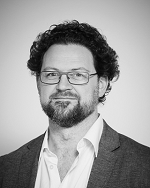
Dr Mark Wang is a postdoctoral fellow. His research focuses on neuromorphic engineering, mixed-signal/analog VLSI design, ASIC/SoC/FPGA design, computational neuroscience, deep network, machine leaning, cognition systems and signal processing.

Dr Ying Xu's research interests include Neuromorphic Engineering, Neuromorphic Auditory Systems and Applications, Mixed-signal VLSI Design, ASIC/SoC/FPGA Design and Machine Learning.
